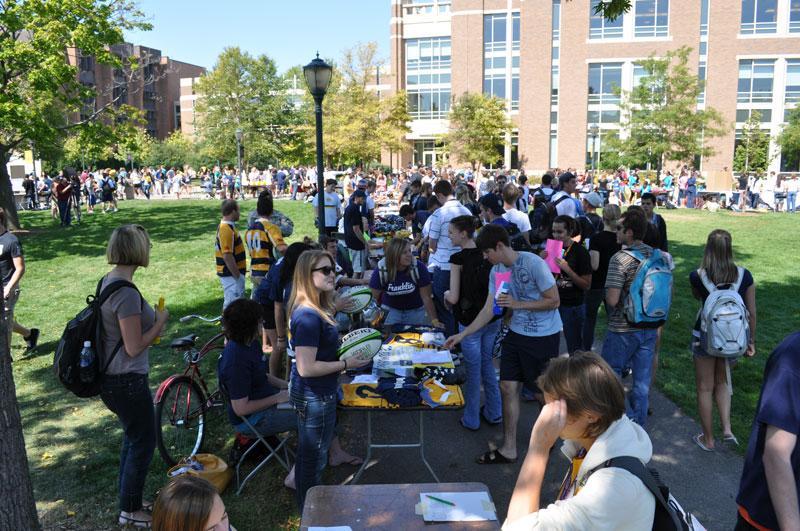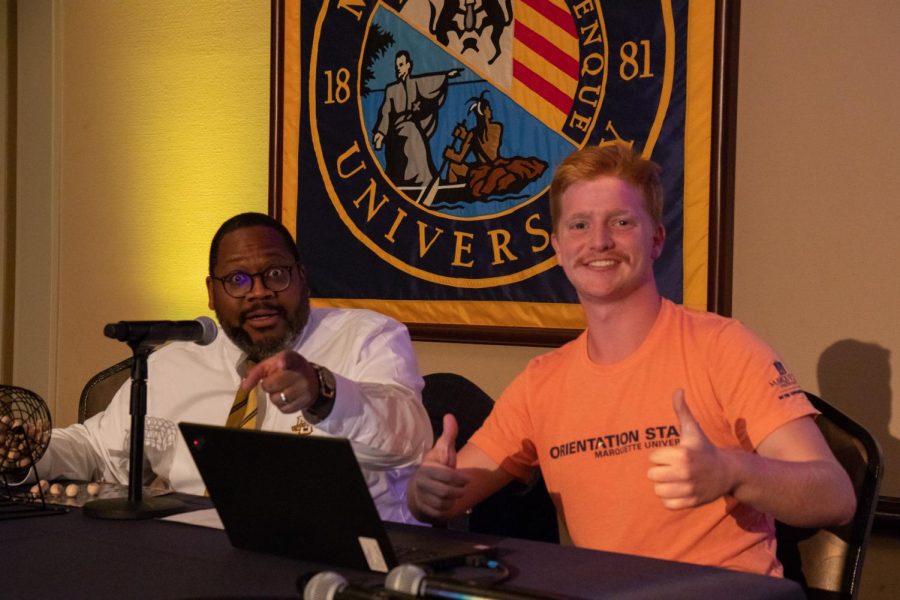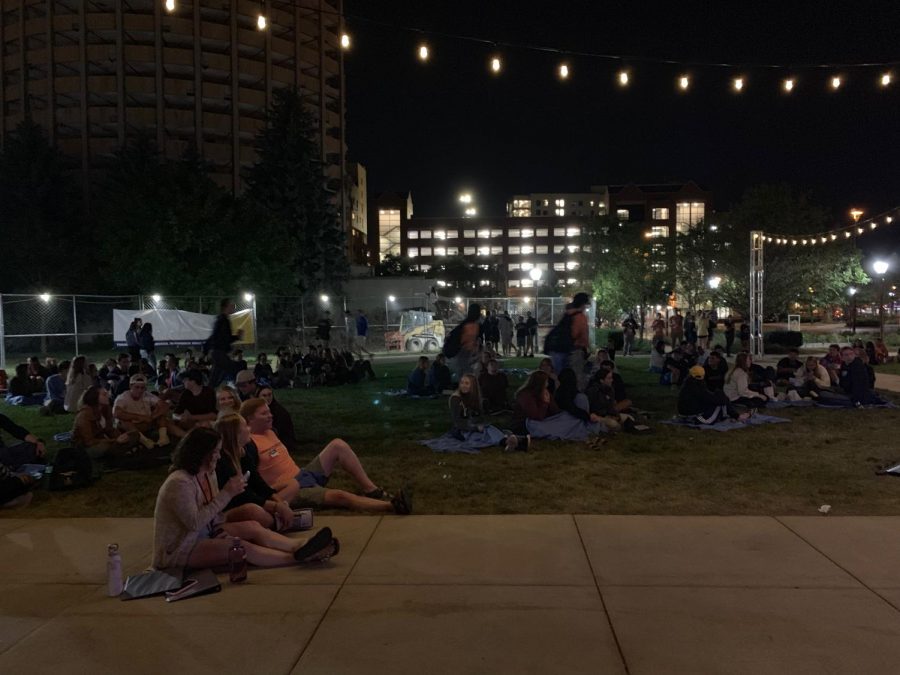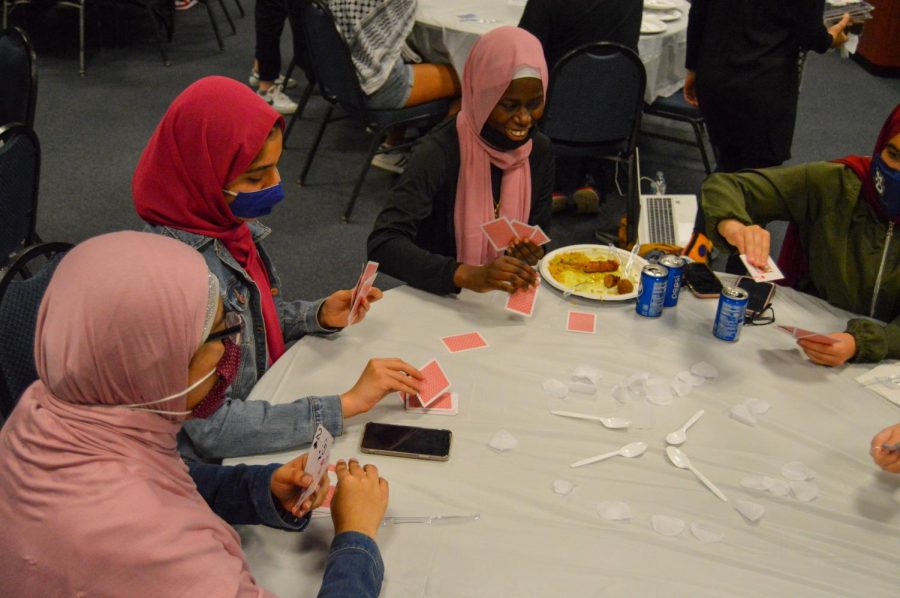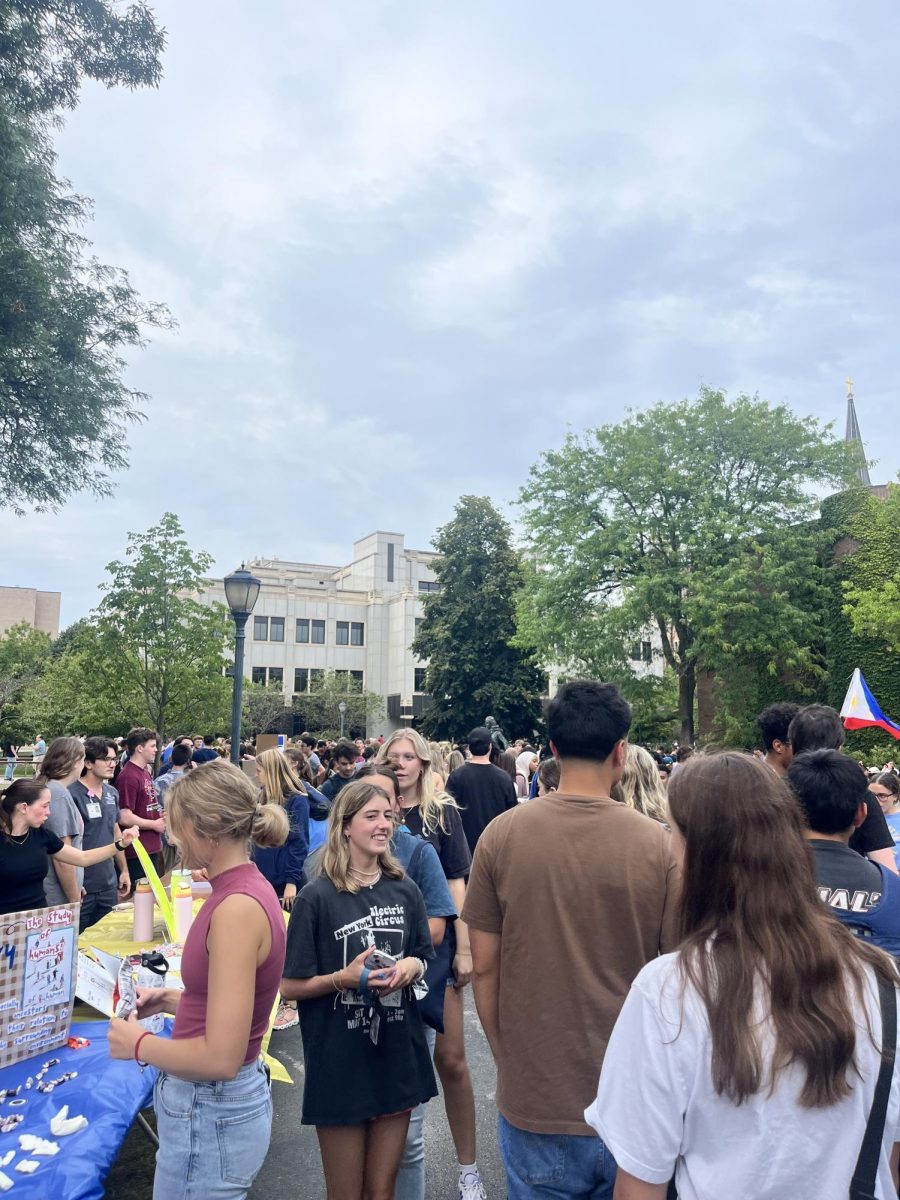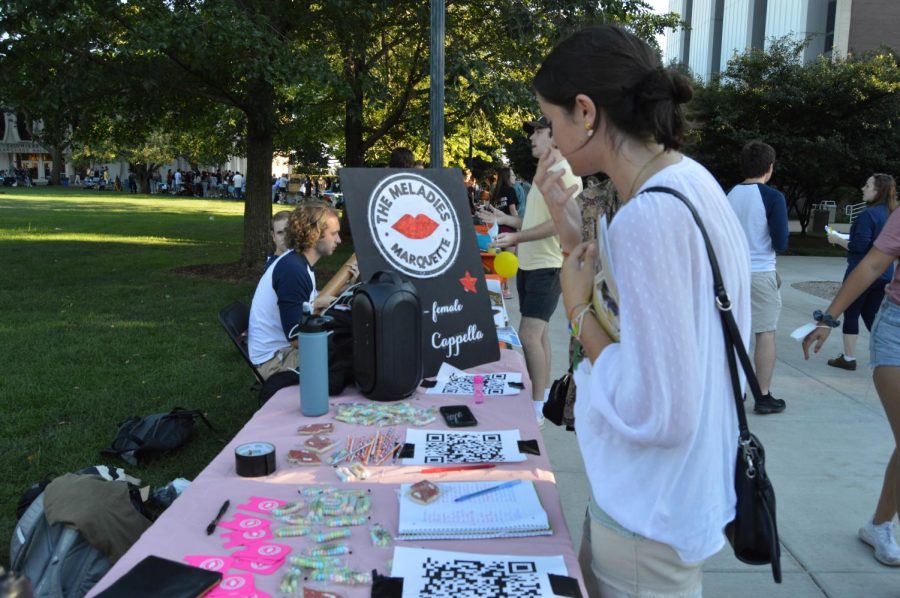When I was a freshman, O-Fest was both a stressful and frightening experience. As I walked down the path between Raynor Library and Lalumiere Hall, about a hundred students from a variety of organizations shouted in my face, encouraging me to sign up for the email newsletter while shoving free cups and pens into my hand. It was a lot to process.
This year I was able to experience O-Fest from an entirely different perspective: from behind a table. Seeing students weave between one another and get yelled at by a ton of different student groups reminded me of my experience freshman year. The more I thought about it, the more I realized that O-Fest is one of Marquette’s most flawed and disorganized events and changes in how it is facilitated are necessary.
I have no issue with student organizations using aggressive recruiting tactics. The whole point of O-Fest is to capture the interest of prospective students, so I can respect someone being persistent. However, it’s overwhelming when a massive amount of people are doing it at once.
O-Fest just has too much going on. There are too many people and too many different organizations all convening at once. It makes it difficult to focus on retaining pertinent information from the groups students are interested in joining.
Marquette, however, has taken a step in the right direction regarding this issue. This year, only three members of an organization at a time were allowed to run their table. In previous years, dozens of organization members would staff their table during O-fest —creating unnecessary traffic and overcrowding. Reducing the number of people allowed to be at a certain table made this year’s O-fest a little less crowded.
Despite this, I still question why O-Fest is a one-day event. There doesn’t appear to be a reason for this, at least not one the university has made public. That said, Marquette should consider turning O-Fest into a multi-day event. This could solve almost all of the problems that the event currently faces —including overcrowding, inundating students with information and disorganization.
Currently, O-Fest’s attempt at organizing the tables is flawed. The layout of the festival is not an easy one to follow or understand. To separate different types of organizations, the festival coordinators mark certain stretches of tables with signs. For example, one area was dedicated to Greek life tables, another was dedicated to club sports. On paper, this concept works, but when there are so many tables and people, it makes it extremely difficult to find your way around or find exactly what you’re looking for.
A week-long O-Fest could split up different types of organizations by day. For example, academic clubs could gather on one day, Greek life on another and so on. This would decrease the amount of traffic coming through as well as the number of tables there.
O-Fest is also much shorter than it needs to be. It only lasts about four hours, which is ridiculous. Hypothetically, let’s say an unfortunate soul has a class during the entirety of O-Fest but they’re really interested in joining a certain club. They might be out of luck, because there is no guarantee that an organization will show up at any other event that Marquette hosts.
Splitting up topics by day would address this issue. Perhaps the last day of the week could be a traditional O-Fest, where all the clubs can have a table. Yes, this would be a chaotic day, but it gives students multiple opportunities to talk to organizations they are interested in. Plus, there would be less people attending the last day, because they may have already seen what they wanted on previous days.
Taking an action as simple as this could make O-Fest a much less stressful, and perhaps a more enjoyable experience.

